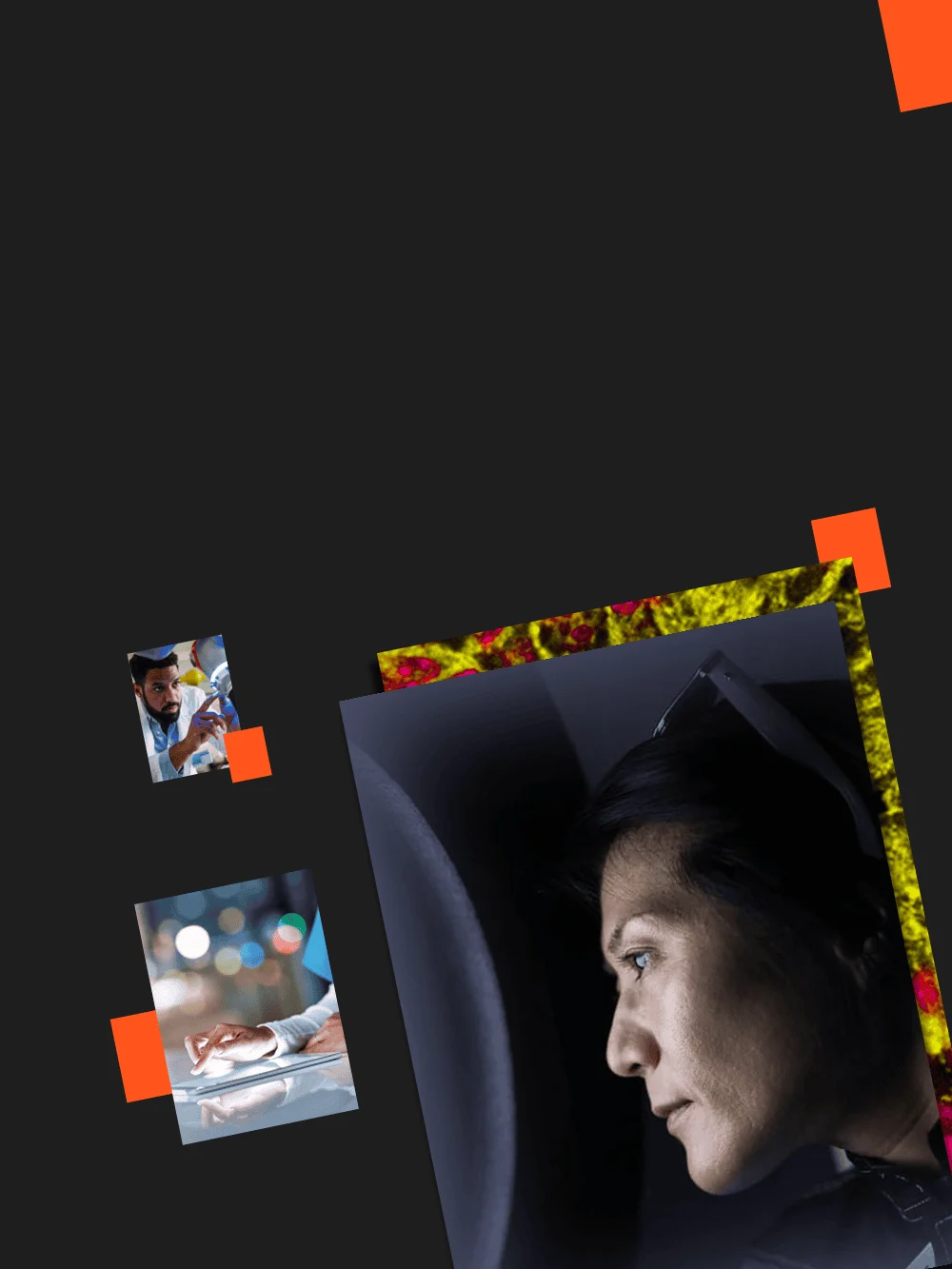Let's shape the future of health, together

Lamentablemente no somos totalmente compatibles con su navegador. Si tiene la opción, actualice a una versión más reciente o utilice Mozilla Firefox, Microsoft Edge, Google Chrome o Safari 14 o posterior. Si no puede y necesita ayuda, envíenos sus comentarios.
Agradeceríamos sus comentarios sobre esta nueva experiencia.Díganos qué piensa
Care that begins and ends with human connection

At Elsevier, we believe there’s a better way forward—one where technology doesn’t widen the gap between healthcare professionals and patients but helps close it. When designed with trusted quality content and expert oversite and infused with empathy and intention, digital tools can empower those who deliver care and support the patients who depend on it.
At the heart of this vision is a simple truth: healthcare is, and always will be, human. Every solution must begin with the people it’s meant to serve—clinicians, educators, learners, and patients alike.
But meaningful progress requires more than just good intentions. It demands collaboration, shared purpose, and a commitment to addressing the challenges that matter most.
In today’s healthcare landscape, too many patients still face barriers rooted in bias, inequity, and underrepresentation. Too many clinicians are working within systems that weren’t built with their workflows in mind. Too many students enter the field feeling unprepared for the realities of practice. And too often, clinicians struggle to get to the root of what their patients truly need.
There is no doubt that digital health has shifted the paradigm of quality medical care. AI technologies are providing the potential to enhance the ability to diagnose diseases accurately, provide effective treatment, and improve healthcare delivery for individual patients while empowering patients to have greater control over their health. However, there is still anxiety about its use—fear of dehumanization, concerns about privacy and security, and worries about technological dependence. But what if we shift the mindset?
What if technology could not only enhance care but also strengthen trust and understanding between clinicians and patients? Consider this: 59% of clinicians report spending time correcting patient misinformation, a task that adds to their already heavy workloads.
One of the major challenges I see in healthcare today is healthcare inequity. And really what that means is patients not having the same availability or access to care in the same way. And I think today’s emerging trends with generative AI, new emerging technologies and evidence-based content pulled together as a resource really help physicians and clinicians refine healthcare inequity. 
Kevonne Holloway
Managing Director, Global Content Partners en Elsevier
Real progress in healthcare doesn’t happen by chance—it’s driven by intention, collaboration, and a deep commitment to those who deliver and receive care.
At Elsevier, we’re focused on four key areas with the power to shape a healthier future: improving outcomes, promoting inclusivity, empowering nurses, and bridging the gap between education and practice.
Improving outcomes: Every decision in healthcare has a ripple effect. 58% of clinicians believe AI-powered tools will lead to faster diagnoses, and 55% predict better patient outcomes. By making insights more accessible and actionable, we can help clinicians deliver care that is timely, effective, and patient-centered.
Promoting inclusivity: Healthcare should reflect the diversity of the world it serves. Addressing systemic inequities and championing representation ensures that every patient feels seen, heard, and cared for.
Empowering nurses: Nurses are the backbone of healthcare, yet global nursing shortages are projected to reach 4.1 million by 2030. Supporting nurses isn’t just a priority—it’s a necessity. Enhancing learning through technology and innovation enables nurses to benefit entire healthcare systems.
Bridging education and practice: The transition from education to practice is critical, but only 14% of new graduate nurses demonstrate readiness for residency. At the same time, 71% of medical students agree that digital health technologies will enable positive transformation of healthcare. By strengthening this bridge with the right technology, we can build a confident, capable workforce ready to meet the demands of modern healthcare.
These aren’t just challenges—they’re opportunities to work together, to listen, and to make a lasting impact on clinicians, educators, learners, and patients
Responsible AI in healthcare isn’t just about building smarter tools—it’s about building fairer systems. We must ensure these technologies are designed to support clinicians, not replace them, and that they reflect the diversity of the patients they serve. 
Rhett Alden, PhD
Chief Technology Officer for Health Markets en Elsevier
This isn’t a distant dream—it’s a vision within reach. And it begins with humility, collaboration, and a shared commitment to putting patients first.
At Elsevier, we see healthcare as a shared mission and a commitment to progress. By collaborating with healthcare communities, we not only address today’s challenges, but also unlock opportunities for continuous advancement. Our vision is guided by four clear priorities: delivering insights to improve outcomes, bridging education and practice, empowering nurses, and championing inclusive healthcare. Every resource we develop and solution we deliver is a reflection of our promise to work alongside healthcare professionals, creating a more inclusive, innovative, and impactful future for care. — Jan Hertzoff, PhD, President, Global Health Markets at Elsevier
Whether you're guiding teams, teaching the next generation, or an impact maker, your leadership is essential to building a better future in healthcare. Join us in creating a world where every decision, every tool, and every solution is designed to support those who deliver care, those preparing to do so—and the patients who depend on them.
Sources
Elsevier. (2025). Clinician of the Future 2025 Report. https://www.elsevier.com/insights/clinician-of-the-future/2025
WHO. (2025). State of the worlds' nursing report 2025. https://www.who.int/publications/i/item/9789240110236
American Nurses Association. (2025). Practice-ready new RNs? https://www.myamericannurse.com/practice-ready-new-rns/
Elsevier. (2023). Clinician of the Future: Education Edition. https://www.elsevier.com/insights/clinician-of-the-future/education-edition
